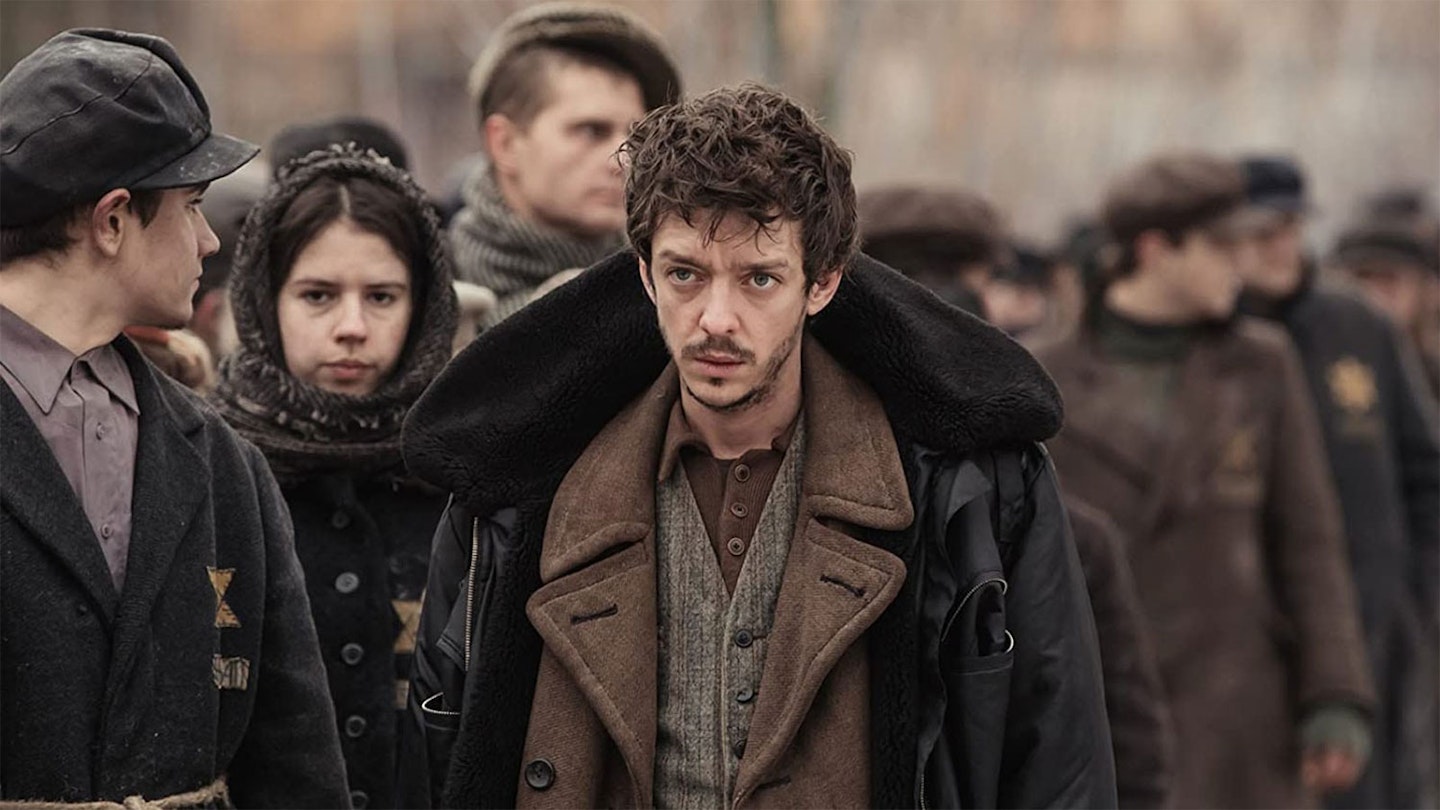Eighty years since the Holocaust, filmmakers are still finding new ways to commemorate the lives lost to Nazism’s genocidal ideology. Vadim Perelman’s Persian Lessons joins recent offerings Jojo Rabbit, The Painted Bird and Resistance in trying to depict the horror against Jewish people, each in drastically different ways. But while the Ukrainian director’s latest means well, his approach to the concept pushes the boundaries of plausibility.
The film, written by Ilja Zofin, is grounded in the dangerous reality of Nazi occupation from the get-go. A simple exchange between two Jewish men in the back of a packed cart is soon followed by the execution of their entire party against the backdrop of a French countryside vista. The production design, costumes and set-lighting all enhance this unvarnished-yet-clinical perspective on the events that follow. Also emphasised is the gulf between Nahuel Pérez Biscayart’s protagonist Gilles and his German captor Klaus Koch (Lars Eidinger), even when an almost reverse Stockholm Syndrome relationship begins to take form.
The plot’s linguistic conceit fails to hold up under the mildest scrutiny
It’s their impressive performances and the tension they create that keeps the film together, even if they fit the bill of the frequently used World War II tropes of the resourceful Jew and the opportunistic Nazi. Gilles uses the names of his fellow Undesirables that come through the camp as inspiration for his faux lexicon, while Koch is using the ‘Persian’ captive to improve his chance of post-War escape without consequences to Iran. But the plot’s linguistic conceit fails to hold up under the mildest scrutiny. Language is more than just nouns, but verbs and grammatical variations too, that allow for communication. Thus, the ‘Farsi’ lessons are too limited and Koch too intelligent for Gilles’ lie to maintain the level of believability that it apparently does. It’s also disappointing that the only real Persian in the film is as much of a voiceless prop as the Persian book of poetry that saves Gilles’ life at the beginning.
Still, the film’s message is more important than the means, and the cinematic language of Perelman’s survivor’s story speaks truth to that pain even when the dialogue is wanting.
